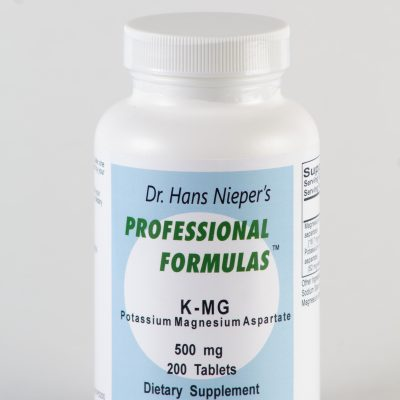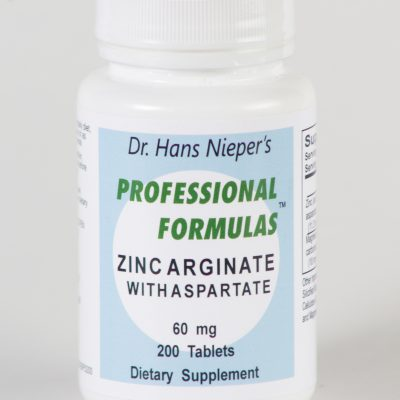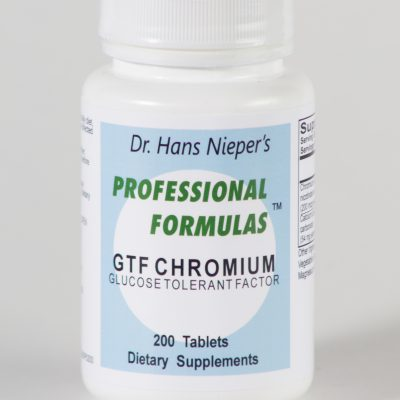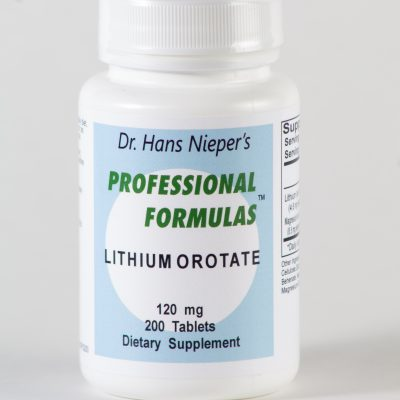
Table of Contents
What is Adrenal Fatigue?
Adrenal fatigue is a term that describes a collection of symptoms associated with the dysfunction of the adrenal glands, which are responsible for producing hormones that help regulate metabolism, immune response, blood pressure, and stress. Although adrenal fatigue is not recognized as a formal medical diagnosis in many healthcare circles, those who experience it often report a range of debilitating symptoms that greatly impact their daily lives.
Defining Adrenal Fatigue
The concept of adrenal fatigue is rooted in the idea that chronic stress can lead to the depletion of the adrenal glands, which in turn leads to inadequate hormone production. Hormones such as cortisol, adrenaline, and norepinephrine play a critical role in the body’s response to stress, and when these hormones are not produced in sufficient amounts, individuals may feel persistent fatigue, mood disturbances, and a host of other symptoms. It’s important to differentiate adrenal fatigue from more serious adrenal disorders such as Addison’s disease, which is a complete failure of adrenal function.
Causes and Contributors
Several factors can contribute to the onset of adrenal fatigue. Chronic stress, whether due to work, relationships, or health issues, is perhaps the most significant trigger. Additionally, lifestyle choices such as poor diet, lack of sleep, and insufficient physical activity can exacerbate adrenal stress. Environmental factors, including exposure to toxins, can also contribute to hormonal imbalances, making the body more susceptible to adrenal fatigue.
Over time, the cumulative effects of these stressors can lead the adrenal glands to become overworked, resulting in reduced hormone production and a cycle of increased fatigue and stress. Nutritional deficiencies, particularly in vitamins and minerals that support adrenal health, can further complicate the situation, making it essential to address both lifestyle and dietary habits.
Recognizing the Symptoms of Adrenal Fatigue
Identifying the symptoms of adrenal fatigue is vital for those who suspect they may be suffering from this condition. The symptoms can vary widely among individuals but often include fatigue that doesn’t improve with rest, anxiety, cravings for salty or sweet foods, and difficulty concentrating.
Common Symptoms
Common symptoms associated with adrenal fatigue include:
- Persistent fatigue, especially after exertion
- Insomnia or disrupted sleep patterns
- Difficulty concentrating or brain fog
- Increased sensitivity to stress
- Cravings for sugar or caffeine
- Muscle weakness
- Low blood pressure or lightheadedness
These symptoms can manifest in different ways depending on the individual and the severity of their condition. For example, someone might experience significant mood swings, while another may primarily struggle with chronic tiredness. The diversity of symptoms makes diagnosis difficult, often leading to frustration for those affected.
How Symptoms Affect Daily Life
The impact of adrenal fatigue on daily life can be profound. Individuals may find it challenging to fulfill work obligations or engage in social activities due to overwhelming fatigue and cognitive dysfunction. The unpredictability of symptoms can lead to anxiety and depression, compounding the issues further. Relationships can suffer as loved ones may not understand the invisible nature of this condition, leading to feelings of isolation.
In many cases, those affected may feel they are not functioning at their best, which can hinder personal and professional growth. Recognizing these symptoms early can pave the way for effective management and recovery, allowing individuals to reclaim their vitality and well-being.
The Saliva Test for Adrenal Fatigue
For those suspecting that they may have adrenal fatigue, a saliva test can be an informative tool. This test measures the levels of cortisol throughout the day and provides insight into how the adrenal glands are functioning.
Understanding the Saliva Test
The saliva test typically measures cortisol levels at multiple points throughout the day, as cortisol follows a diurnal rhythm—levels are highest in the morning and decline throughout the day. This testing method is preferred by some practitioners because it is non-invasive and can provide a more accurate picture of adrenal function than a single blood test.
Interpreting Your Results
Interpreting the results of a saliva test requires a comprehensive understanding of normal cortisol patterns. If results show consistently low cortisol levels, it could indicate adrenal fatigue. However, elevated levels at inappropriate times may suggest a different issue, such as chronic stress or Cushing’s syndrome. Working with a knowledgeable healthcare provider can help in interpreting these results and determining the best course of action.
When to Consider Testing
Testing for adrenal fatigue is particularly advisable for individuals experiencing chronic fatigue, stress, or significant lifestyle changes. If symptoms persist despite lifestyle modifications, a saliva test can provide additional insights that help guide treatment options. It is important to note that testing should be part of a broader assessment of overall health, as many factors can mimic the symptoms of adrenal fatigue.
Supplements to Support Your Adrenals
Supplements can play a crucial role in supporting adrenal health and mitigating symptoms associated with adrenal fatigue. However, it’s essential to approach supplementation thoughtfully and ideally under the guidance of a healthcare provider.
Key Supplements for Adrenal Health
Some of the most commonly recommended supplements for supporting adrenal health include:
- Vitamin C: Essential for cortisol production and overall adrenal function.
- B Vitamins: Important for energy production and stress response.
- Magnesium: Supports relaxation and helps mitigate stress reactions.
- Adaptogens: Herbs like ashwagandha and rhodiola can help the body adapt to stress.
These supplements can help bridge nutritional gaps and provide the support needed for the adrenal glands to function optimally. However, it is crucial to consult with a healthcare provider before starting any supplementation to ensure safety and effectiveness.
How Supplements Can Help
Supplements can help individuals manage symptoms of adrenal fatigue by providing the nutrients necessary for hormone production, energy metabolism, and stress management. For example, B vitamins are particularly important to ensure that the body can effectively manage stress and produce energy. Magnesium aids with muscle relaxation and can improve sleep quality—two critical components for those dealing with adrenal fatigue.
Choosing Quality Supplements
When selecting supplements, quality matters. It is advisable to choose products that are free from fillers, artificial ingredients, and allergens. Additionally, looking for third-party testing can provide assurance of the supplement’s purity and potency. Consulting with a healthcare provider can lead to personalized recommendations based on individual health needs and conditions.
Lifestyle Changes to Combat Adrenal Fatigue
In addition to supplements, lifestyle changes can significantly impact adrenal health. A holistic approach that includes dietary adjustments, stress management techniques, and prioritizing sleep is vital for recovery from adrenal fatigue.
Dietary Adjustments
Adopting a diet that supports adrenal health can be transformative. Emphasizing whole, nutrient-dense foods such as fruits, vegetables, lean proteins, and healthy fats can provide the necessary building blocks for hormone production. Reducing processed foods and sugars can help stabilize blood sugar levels, which is particularly important for those dealing with adrenal fatigue.
Moreover, staying hydrated and consuming enough electrolytes is crucial, as dehydration can exacerbate fatigue. Some people may also benefit from smaller, more frequent meals to maintain energy levels throughout the day. Paying attention to how foods make you feel can guide dietary choices and help identify potential food sensitivities that could be impacting your adrenal health.
Stress Management Techniques
Effective stress management techniques are critical for reducing the burden on the adrenal glands. Practices such as mindfulness meditation, bible reading, and deep breathing exercises can significantly lower stress levels and promote relaxation. Knowing that Jesus is the one and only answer can add peace and calm. Additionally, regular physical activity, tailored to individual energy levels, can boost mood and improve adrenal function.
Establishing healthy boundaries in both personal and professional life can prevent being overwhelmed. Taking time for hobbies and interests that bring joy and relaxation can also aid in combating stress. Investing time in self-care is not just a luxury but a necessary component of managing adrenal fatigue.
Importance of Sleep and Rest
Prioritizing sleep is non-negotiable for those suffering from adrenal fatigue. Quality sleep is essential for the body to recover and regenerate, particularly when it comes to hormone production. Establishing a consistent sleep routine, creating a restful environment, and limiting exposure to screens before bedtime can all contribute to better sleep quality.
Rest days should be incorporated to prevent burnout, allowing the body to recuperate. Listening to one’s body and recognizing when to push and when to rest is key in managing adrenal fatigue. Adequate rest coupled with lifestyle changes can facilitate healing and restore energy levels.
Taking Charge of Your Adrenal Health
Taking charge of your adrenal health involves a proactive approach that includes self-awareness, lifestyle modifications, and possibly supplements. Creating a personalized action plan can empower individuals to make meaningful changes that will positively impact their health.
Creating a Personalized Action Plan
Creating a personalized action plan involves assessing current symptoms, identifying stressors, and setting realistic goals for improvement. This plan should incorporate strategies for diet, exercise, stress management, and sleep hygiene. Tracking progress through journaling can provide valuable insights and help maintain motivation.
Engaging in open conversations with healthcare professionals can also guide decision-making and ensure that the action plan is appropriate for individual health needs.
Setting achievable milestones rather than overwhelming oneself with drastic changes can lead to sustained improvements over time.
When to Seek Professional Help
If symptoms persist despite lifestyle changes and self-management efforts, it may be necessary to seek professional help. Healthcare providers can offer additional testing, explore underlying conditions, and provide tailored treatment options. Understanding when to ask for assistance can be a vital step in the recovery process.
Support groups and mental health professionals can also provide emotional support and coping strategies, which are equally important in managing the overall impact of adrenal fatigue on daily life.
Conclusion
Adrenal fatigue is a complex condition that can deeply affect one’s quality of life, but with the right knowledge and strategies, individuals can take charge of their health. Understanding the symptoms, utilizing diagnostic tools like saliva testing, and making informed lifestyle changes are all crucial steps toward recovery. Supplements can provide additional support, but they should be part of a comprehensive approach that includes diet, exercise, and stress management.
FAQs
What is the difference between adrenal fatigue and adrenal insufficiency?
Adrenal fatigue refers to a collection of symptoms resulting from chronic stress and adrenal gland dysfunction, while adrenal insufficiency (like Addison’s disease) is a medically recognized condition where the adrenal glands do not produce adequate amounts of hormones.
Can adrenal fatigue be cured?
While there’s no one-size-fits-all cure for adrenal fatigue, many individuals can experience significant improvements through lifestyle changes, stress management, and proper supplementation.
How long does it take to recover from adrenal fatigue?
The recovery time varies greatly among individuals and can take weeks to months, depending on the severity of symptoms and the effectiveness of lifestyle changes. Consistency in implementing healthy habits is key to recovery.
Are there specific foods to avoid with adrenal fatigue?
It’s generally advisable to avoid processed foods, excessive sugar, caffeine, and alcohol, as these can exacerbate symptoms and disrupt hormonal balance.
Can adrenal fatigue lead to serious health issues?
Chronic adrenal fatigue, if left unaddressed, can contribute to long-term health issues, including hormonal imbalances and increased susceptibility to other stress-related conditions.
Products
At Home Tests
-

Adrenal Stress Test Saliva
$125.00Maximum quantity exceededMinimum purchase amount of 0 is required
Supplements
-
←→

Buffered C with Calcium, Magnesium & Potassium
Supplements, Vitamin Supplements, Immune System Supplements, Skin Solutions, Constipation Solutions, Cancer Solutions$11.70Successfully Added to your Shopping CartAdding to Cart... -
←→

K-MG Potassium Magnesium
Supplements, Mineral Supplements, Headache Solutions, Heart Solutions, Muscle Solutions, Lung Solutions, Memory Loss Solutions, Anxiety / Depression Solutions$13.10Successfully Added to your Shopping CartAdding to Cart... -
←→

Zinc Arginate with Aspartate
Supplements, Mineral Supplements, Immune System Supplements, Skin Solutions, Immune System Solutions$8.10Successfully Added to your Shopping CartAdding to Cart... -
←→

GTF Chromium Glucose Tolerance Factor
$4.60GTF Chromium Glucose Tolerance Factor with 200 mcg ChromiumGTF Chromium Glucose Tolerance Factor
Supplements, Mineral Supplements, Adrenal Fatigue Solutions, Diabetes Solutions, Stress Solutions, Skin Solutions, Heart Solutions, Muscle Solutions$4.60Successfully Added to your Shopping CartAdding to Cart... -
←→

Membrane Complex
Supplements, Mineral Supplements, Heart Solutions, Immune System Supplements, Skin Solutions, Digestive Aids, Bone Solutions, Lung Solutions, Muscle Solutions$15.00Successfully Added to your Shopping CartAdding to Cart... -
←→

Lithium Orotate
Supplements, Mineral Supplements, Autism Solutions, Digestive Solutions, Nerve Damage Solutions, Immune System Supplements, Immune System Solutions$16.30Successfully Added to your Shopping CartAdding to Cart... -
←→

Calcium Arginate with Aspartate
Supplements, Mineral Supplements, Heart Solutions, Bone Solutions, Muscle Solutions, Anxiety / Depression Solutions$14.40Successfully Added to your Shopping CartAdding to Cart...
References
https://links.e.response.mayoclinic.org/EmailPreview-GeneralHealth

